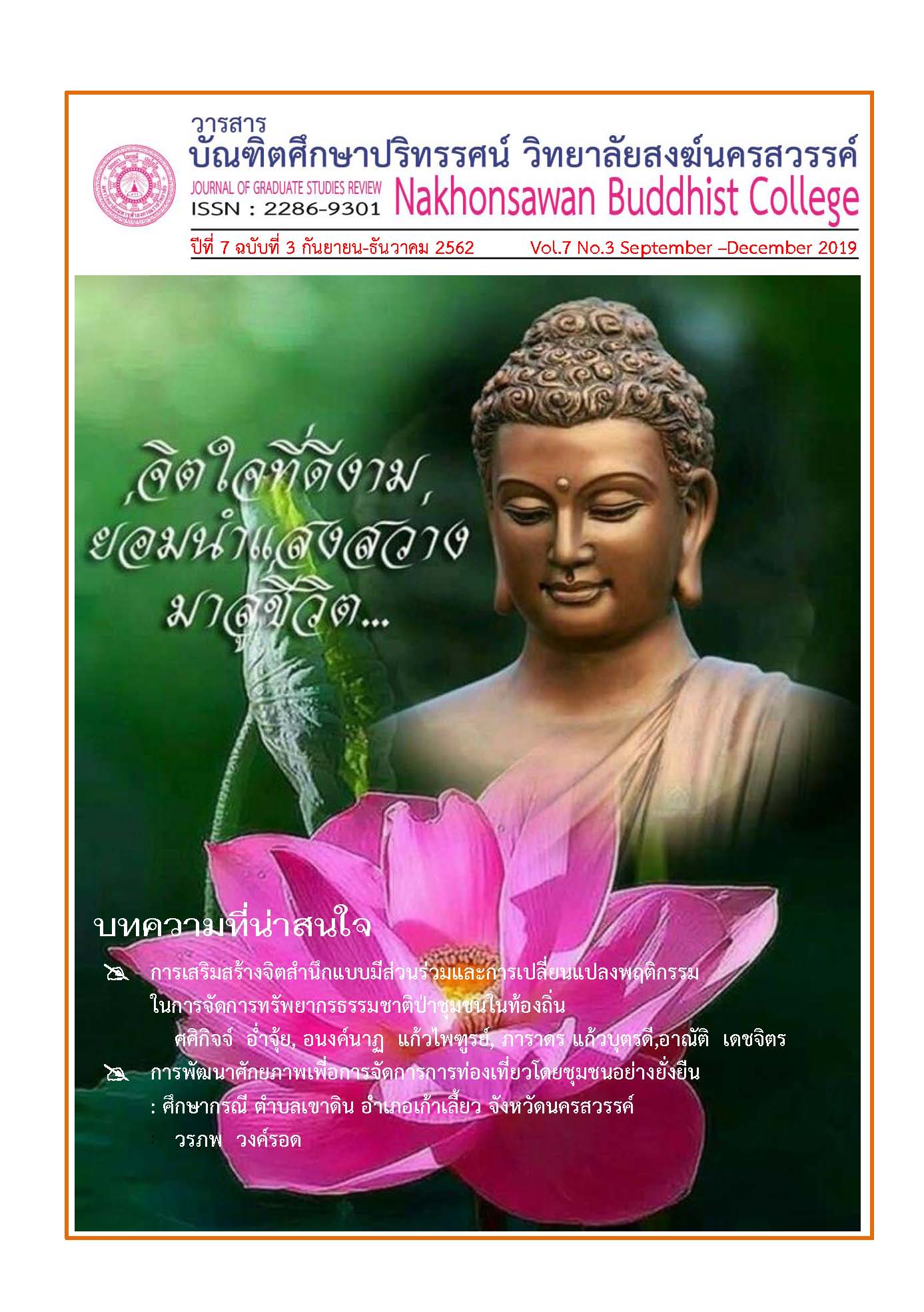Human resource management for the elderly according to the Buddhist way
Main Article Content
Abstract
This article aims to study how to develop the elderly population according to the Buddhist way to be valuable to the social economy. At present, Thai society is entering an aging society. Expected to enter the elderly society completely in 2027, where both male and female populations over the age of 60 will have more than 20 percent of the entire population and have a population aged over 65 years more than 14 percent of the entire population of the country. Such social conditions result from the advancement of technology and public health systems with higher standards, therefore resulting in an increase in the average age of the Thai population longer while the labor age population tends to decrease. The development of the elderly to be a human capital for quality, both physical and mental health for the elderly to have value for the country's economic and social development. Therefore, the government should have a policy for education. Training and public health for the elderly with measures to improve the ability of the elderly can be a factor in the production of economic systems based on the ability of the elderly to be a human capital that consists of skills and qualifications that are suitable for each type of job, in accordance with the needs of the market As for the development of personality, social, easy to socialize and have the ability to communicate,intelligence emotional Intelligence, personality that is suitable for the job in the workplace characteristic, optimistic creativity, etc. For the quality of happiness, the mental state must rely on the principles of Buddhism in the development of thinking methods and the consciousness of the natural truth with the principle of threefold training, yonisomanasikarn and trinity rule to be aware of the actual process of the process practice and react by integrating the functions of Baan, temples and government offices or "บวร-Bowon" as a mechanism for the development of the elderly human capital.


